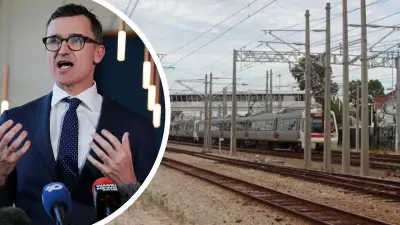
The Property Council of Western Australia has issued a stark demand to the State Government, calling for local councils that obstruct housing development to be stripped of their planning powers.
Executive Director Nicola Brischetto delivered the message on Wednesday, 12 November 2025, arguing that some councils are actively worsening the state's housing shortage by delaying or blocking new projects through zoning and planning decisions.
A Call for State Intervention
Ms Brischetto stated that much-needed housing, particularly in strategic areas like train station precincts, is becoming financially unviable due to councils dragging projects through a slow and uncertain planning system.
She proposed a clear solution: decision-making powers should be transferred to the State for any local government that cannot or will not advocate for its fair share of new housing.
This approach, she noted, has been successfully implemented in other jurisdictions. The goal is to ensure consistent, evidence-based planning decisions for the community, rather than what she described as a postcode lottery.
How Delays Kill Development
Ms Brischetto explained that some councils impose unrealistic schemes and planning policies that make projects economically unfeasible. Even in State-led approval processes, these local rules must be considered, adding significant time and uncertainty.
Anything that slows down the approval process adds holding costs to new builds, she emphasised. Amid historically high construction costs, these additional financial burdens can be enough to kill developments entirely.
She accused councils that stand in the way of increased housing density of failing future generations in the communities they are meant to serve, framing housing supply as a matter of intergenerational equity.
Councils Push Back Against Claims
While Ms Brischetto declined to name specific problematic councils, she alluded to recent headlines involving Cottesloe Council, which has been a vocal critic of plans for 15- and 17-storey towers near its train station.
She also claimed that some councils refuse to work collaboratively with developers to find solutions that meet environmental and social standards, instead finding ways to delay and reject development.
However, the President of the Western Australian Local Government Association (WALGA), Karen Chappel, strongly rebutted the Property Council's claims. Ms Chappel stated that the criticisms were not supported by facts and that the critical role local governments play in supporting housing delivery should be acknowledged, not attacked.
The debate highlights the growing tension over who bears responsibility for solving Western Australia's deepening housing crisis, with chronic undersupply and rapid population growth widening the gap between demand and available homes.






